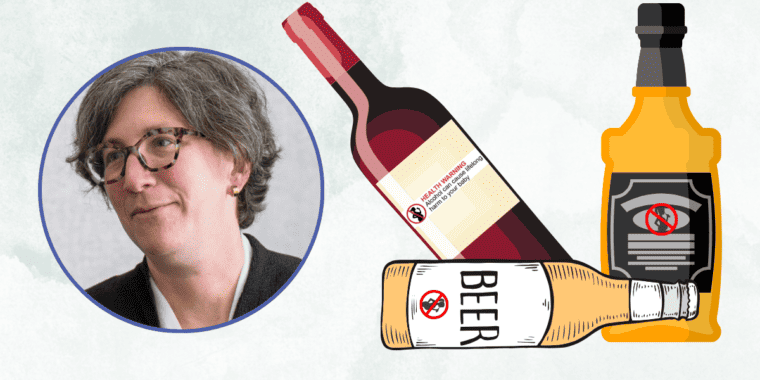
Most states in the United States have had one or more pregnancy-specific alcohol policies (government policies that single-out pregnant people’s alcohol consumption) for decades. But, until recently, there has been very little research about the effects of these policies.
In the U.S., some of the more common pregnancy-specific alcohol policies include those that require the posting of Warning Signs warning about the harms of drinking during pregnancy and those that require health care providers to report pregnant people who drink to government agencies. It turns out, though, that most of these pregnancy-specific policies aren’t effective. In fact, some of them actually make things worse.
Effects of pregnancy-specific policies
From research I have been leading over the past decade, it turns out that the policy that most consistently relates to increased adverse maternal and infant outcomes is mandatory Warning Signs policies. I know. It’s surprising. But, we’ve found it over and over again in different studies. We don’t yet have enough research to be completely sure as to why. But, based on the research we’ve done to date, it seems likely that the Warning Signs scare people away from getting prenatal care and treatment. They may also increase stigma. Other policies that require health care providers to report pregnant people who consume alcohol to government authorities or define alcohol use during pregnancy as child abuse/neglect are similarly ineffective and, in some cases, harmful.
Stepping back, the purpose of pregnancy-specific policies is to reduce harms related to pregnant people’s alcohol consumption. Thus, when they don’t work, it’s time to consider de-implementing them – either by repealing or replacing them.
General population alcohol policies as an alternative
This doesn’t mean, though, that there’s nothing that policymakers who want to take evidence-informed action can do. In fact, the evidence-informed path is not based on new ideas. Rather, it’s based on an idea that’s been around for decades, but, until recently, hadn’t been researched and hadn’t gotten traction. Instead of policies that single out pregnant people’s drinking, the more promising policies appear to be those that affect the whole population. Policies like alcohol taxes or controlling where alcohol can be sold. When you think about it, the idea that general population alcohol polices might be relevant for reducing harms from drinking during pregnancy makes sense. People do not start drinking when they become pregnant. Instead, if they are drinking during pregnancy, it’s usually that they continued or didn’t fully stop the drinking that they were doing before they became pregnant. So, if you have policies that can reduce alcohol consumption overall or among women of reproductive age in particular, it would make sense that they might also be effective for reducing adverse effects of drinking during pregnancy.
So, what does the research say about which general population policies work? Research my team has led has found two promising policy types – taxes and government monopoly control over retail spirits sales. (It turns out that government monopolies are also effective for young pregnant people!) Researchers in other countries have found something similar regarding taxes.
Conclusion
So, what can people interested in evidence-based alcohol policy do? They can work to stop new pregnancy-specific alcohol policies from going into effect. For pregnancy-specific policies with more evidence regarding adverse effects, they can work to repeal or replace them. They can also point to the benefits for pregnant people, babies, and families of effective alcohol policies more generally – particularly, government monopoly control and taxes.
Written by Professor Sarah CM Roberts, Department of Obstetrics, Gynecology, and Reproductive Sciences, University of California San Francisco.
All IAS Blogposts are published with the permission of the author. The views expressed are solely the author’s own and do not necessarily represent the views of the Institute of Alcohol Studies.
